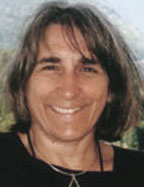
Deborah Pacini Hernandez, taught the course, “Urban Borderlands,” in which students researched the greatest needs of immigrant entrepreneurs.
By Cathleen Twardzik
Last semester, a group of Tufts students researched the greatest needs of immigrant entrepreneurs, all of which run ethnic food establishments in various areas of Somerville.
The community-based course, which was taught by Deborah Pacini Hernandez, Professor of Anthropology and American Studies at Tufts University, was entitled Urban Borderlands. It built on Tufts’ relationship with community-based organizations in Somerville, such as The Welcome Project.
A diverse world of restaurants, coffee shops and markets thrive on business from Somerville’s immigrant population, as well as the significant population of “foodies,” for whom Somerville has become a haven. Somerville boasts approximately 100 immigrant-run establishments.
A plethora of nationalities are represented in the mix. Among them are Ethiopian, Brazilian, Haitian, Latino, Portuguese, Nepalese, Tibetan and Salvadoran.
The group of 10 Tufts’ students surveyed 40 immigrant-run food businesses to capture their experiences as an expanding group of entrepreneurs.
The students found that immigrant entrepreneurs must navigate a sea of obstacles, which are not faced as often by owners who were born in the United States.
Some owners, all of whom are operating on shoestring budgets, must depend on advertising via word-of-mouth, in lieu of using newspapers or the Internet.
There are also language barriers. As new entrepreneurs, many are unfamiliar with bureaucracy and process required if they want to serve wine and beer or make improvements within their buildings.
Additionally, the challenges that immigrant business owners face include parking issues and problems obtaining liquor licenses.
In general, those entrepreneurs were elated to be business owners and were happy to share their experiences, including their frustrations.
For example, Gus DaCunha, Owner of Ola Gifts café on Broadway would like to make some changes, but he has been hindered by the paperwork required for a permit. “I can understand. You have to have regulations, but they can be confusing,” he said.
“The agencies have been aware of some of the challenges but do not have the time or resources to conduct a comparable survey. Now they have a quantity of information from which they can work,” said Pacini Hernandez.
“I wanted to have students do research that would not just gather dust on a shelf. I wanted to have the work produced be of value to work in partnership, to leave behind something of value to the community,” she said.
“In the fall of 2011, we collaborated with The Welcome Project.”
At present, The Welcome project is running YUM, which is a fundraiser.
The course required students to write blogs as part of the project. Blogs described the culture of each restaurant. Students’ blogs will be transferred to The Welcome Project’s Web site.
By participating in the project, students learned that “The city has given a lot of attention to Union Square and East Somerville,” Pacini Hernandez said.
In addition, students were able to hone their research skills and to forge bonds with the community. After their research interviews, they compiled short digital narratives which may be streamed on the Internet.












Reader Comments